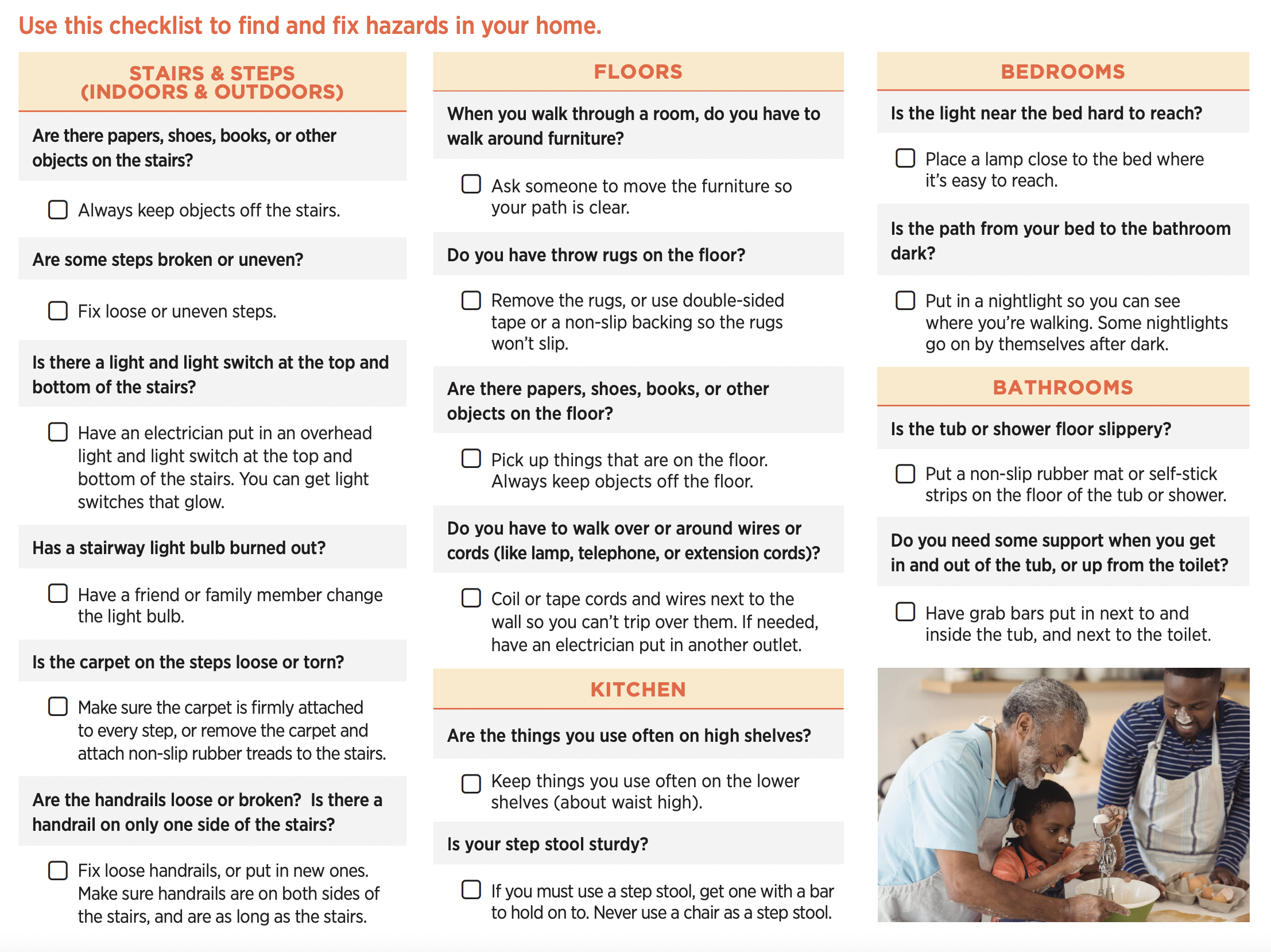What Does Dementia Fall Risk Do?
What Does Dementia Fall Risk Do?
Blog Article
The Only Guide for Dementia Fall Risk
Table of ContentsThe Buzz on Dementia Fall RiskWhat Does Dementia Fall Risk Mean?Dementia Fall Risk - QuestionsMore About Dementia Fall RiskThe Basic Principles Of Dementia Fall Risk
Ensure that there is an assigned location in your medical charting system where staff can document/reference ratings and document appropriate notes related to drop prevention. The Johns Hopkins Fall Threat Assessment Tool is one of lots of tools your team can utilize to assist stop unfavorable medical events.Patient drops in medical facilities prevail and debilitating unfavorable events that continue regardless of decades of initiative to reduce them. Improving communication across the analyzing registered nurse, care group, individual, and person's most included pals and household might enhance loss avoidance efforts. A team at Brigham and Women's Medical facility in Boston, Massachusetts, looked for to establish a standard fall prevention program that focused around enhanced communication and client and family interaction.

The innovation group highlighted that effective execution relies on person and personnel buy-in, assimilation of the program right into existing operations, and integrity to program processes. The team kept in mind that they are facing exactly how to make sure connection in program implementation during periods of situation. Throughout the COVID-19 pandemic, for example, a boost in inpatient falls was related to limitations in client interaction along with restrictions on visitation.
The Single Strategy To Use For Dementia Fall Risk
These cases are commonly considered avoidable. To apply the treatment, organizations require the following: Accessibility to Fall TIPS resources Fall suggestions training and re-training for nursing and non-nursing staff, consisting of brand-new registered nurses Nursing operations that enable individual and household involvement to carry out the falls analysis, ensure use the prevention plan, and perform patient-level audits.
The results can be highly damaging, frequently increasing individual decline and creating longer hospital stays. One research study estimated keeps enhanced an added 12 in-patient days after an individual fall. The Loss TIPS Program is based on interesting individuals and their family/loved ones across three major processes: evaluation, customized preventative treatments, and bookkeeping to ensure that patients are participated in the three-step fall prevention process.
The person analysis is based upon the Morse Autumn Scale, which is a verified fall threat evaluation tool for in-patient healthcare facility setups. The scale consists of the 6 most typical factors clients in hospitals fall: the patient fall background, high-risk conditions (including polypharmacy), usage of IVs and other external devices, psychological status, stride, and flexibility.
Each risk element relate to several workable evidence-based interventions. The registered nurse produces a plan that incorporates the treatments and is noticeable to the treatment team, person, and family on a laminated poster or published visual help. Registered nurses create the strategy while consulting with the client and the patient's family.
How Dementia Fall Risk can Save You Time, Stress, and Money.
The poster acts as an interaction device with various other members of the client's treatment team. Dementia Fall Risk. The audit part of the program consists of examining the client's understanding of their risk aspects and prevention strategy at the system and health center levels. Registered nurse champs carry out at the very least 5 individual meetings a month with clients and their households to check for understanding of the loss avoidance plan

A projected 30% of these drops cause injuries, which can range in seriousness. Unlike other adverse occasions that require a standardized professional response, loss avoidance depends highly on the requirements of the person. Including the input of people that recognize the client ideal enables higher customization. This method has verified to be much more effective than loss prevention programs that are based largely on the production of a danger score and/or are not adjustable.
All About Dementia Fall Risk

Based on auditing outcomes, one website had about his 86% compliance and two websites had over 95% compliance. A cost-benefit evaluation of the Loss pointers program in eight health centers estimated that the program price $0.88 per person to implement and led to savings of $8,500 per 1000 patient-days in straight costs associated with the prevention of 567 drops over three years and 8 months.
According to the innovation group, organizations interested in carrying out the program should perform a readiness evaluation and drops avoidance voids evaluation. 8 In addition, organizations should ensure the needed facilities and workflows for application and develop an application strategy. If one exists, the organization's Loss Avoidance Task Pressure should be associated with preparation.
The Of Dementia Fall Risk
To begin, organizations need to make sure conclusion of training components by nurses and nursing assistants - Dementia Fall Risk. Health center team should examine, based on the needs of a healthcare facility, whether to utilize a digital health and wellness record hard copy or paper version of the fall prevention strategy. Implementing groups need to hire and educate registered nurse champs and establish procedures for bookkeeping and reporting on autumn data
Personnel need to be involved in the process of redesigning the operations here to involve clients and household in the assessment and avoidance strategy procedure. Solution must remain in area to make sure that units can recognize why an autumn occurred and remediate the cause. Extra especially, nurses ought to have networks to give continuous responses to both team and system management so they can readjust and improve autumn avoidance process and connect systemic problems.
Report this page